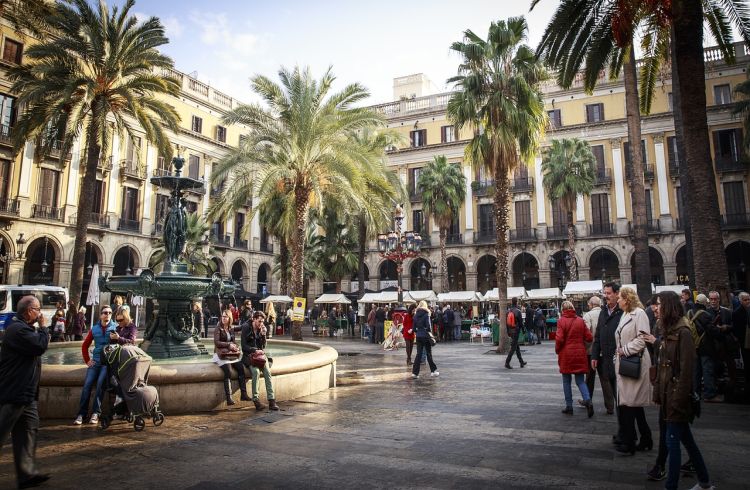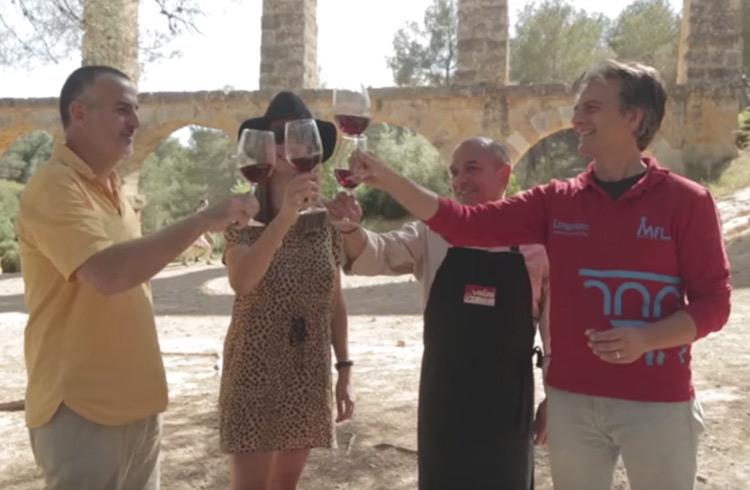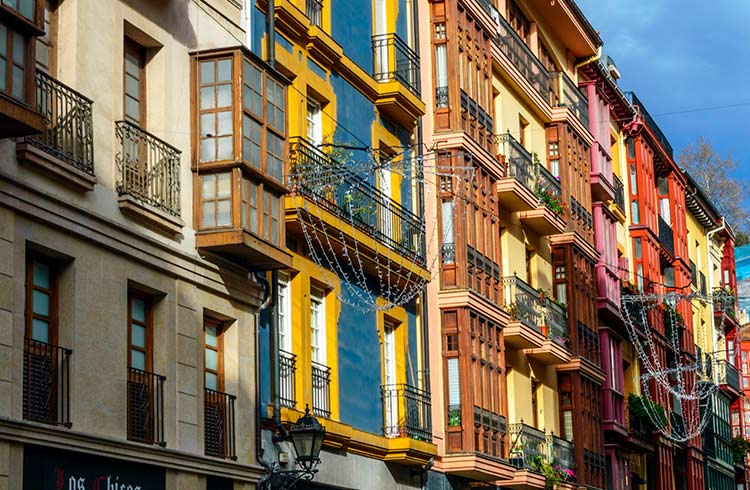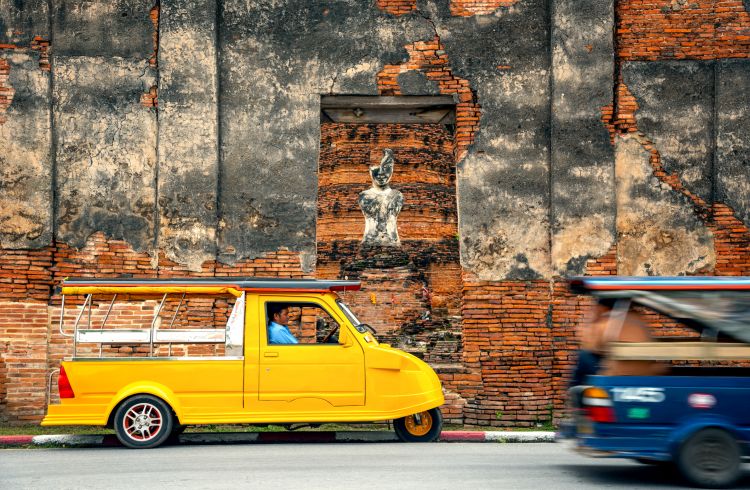Is Barcelona Safe? 12 Essential Travel Tips for Visitors
Barcelona is one of Europe's most enticing cities for culture, architecture and food. But, it's also known for pickpockets. Find out how to keep your valuables safe and avoid common travel scams.
 Photo © Pixabay/Kristina Spisakova
Photo © Pixabay/Kristina Spisakova
Spain's soaring unemployment rate, tourism and scarce legal deterrent for petty crimes have created a perfect storm of petty crime in popular destinations – in particular, Barcelona.
But, there's no need to cancel your flights. As long as you can keep a hand on your wallet, you have nothing to fear in Barcelona.
- Spotting a pickpocket
- Where pickpockets strike
- Protecting your belongings
- What to do if you get pickpocketed
- Common scams in Barcelona
Spotting a pickpocket
Often working in pairs or groups, pickpockets prey on distracted and disoriented tourists. One captures your attention while the other rifles through your bag or slips your phone from your pocket.
It might seem rude or culturally insensitive to question odd or friendly behavior from strangers while you're traveling but this is the attitude pickpockets rely on.
You don't want to be constantly wound up and paranoid when you're trying to relax while on holiday. But, if you do feel suspicious, it's easy to brush your hand over your wallet, pull your bag closer or have a quick look over your shoulder. Don't be afraid to confront anyone following you either, although there's no need to get aggressive. If the thieves know you're onto them, they'll quickly skulk off to await an easier target.
Forewarned is forearmed so if you can recognize a dodgy character or situation you'll know when to be alert and then you can spend the rest of your holiday being pleasantly distracted.
Where pickpockets strike
Pickpockets congregate at popular attractions and transport hubs.
Las Ramblas is one of Barcelona's most popular attractions, with thousands of visitors and locals wandering, shopping, eating and soaking up the atmosphere. However, the boulevard is also notorious for thieves and scammers. During the day, take care when watching the street performers, as they may be working alongside pickpockets in the crowd. Avoid the gaming tables, almost everyone here is on the act.
The south end of Las Ramblas gets a little seedy at night, with prostitutes and drug dealers aplenty.
Plaza Catalunya, at the northern end of Las Ramblas, is another place to watch your valuables. To the south, beware in Barrio Gotico, one of the city's historic districts. During the day it's easy to find yourself isolated in the area's narrow, winding streets.
The popularity of the Picasso Museum makes Carrer Montcada a popular hangout for thieves. The same goes for Carrer de la Princesa and the sidestreets near Mercat Santa Caterina.
Stick to the main roads when making your way to or from Rambla Del Raval as some of the streets near this popular nightspot are a little dodgy.
Be aware of your surroundings when you're arriving or departing the city, particularly if you are carrying your luggage and maybe a little stressed or disoriented. Sants and Franca train stations, Estacio del Nord bus station and the Cercanias Metro line, which goes out to the airport, are all prowled by pickpockets.
Protecting your belongings
- Don't dress like a traveler. That's an instant advertisement to any pickpocket
- Brightly colored clothes aren't big in Barcelona and will make you stick out like a sore thumb. Subdued, autumnal colors make up the locals' preferred palette
- Barcelona is a seaside town but there are two very different dress codes for the beach and the city. There's plenty on show at the shore but don't wear your board shorts and bikinis too far from the water
- Despite the declining influence of the Catholic Church, Barcelona's style is still quite conservative. Fitted clothes are fine but female travelers should avoid overly revealing garments. Miniskirts and low-cut tops will draw the attention of pickpockets, but also some disapproving glares
- Jewelry is like a red rag to a bull for thieves. Don't go out dripping in gold or silver
- Bum bags are right out. Not only do they scream 'I'm a tourist, rob me', but they're very easy to rip or cut off
- Handbags with long straps are also easy for grab and run thieves, who sometimes zoom by on bikes. Try to wear any bags across your body, rather than just over the shoulder, making it more difficult to wrestle them from you. At the very least, tie some knots in any long, thin straps to make them a little shorter and stronger.
Extra tips to keep you safe
The way you behave is perhaps even more important than how you dress in avoiding criminal attention. A really sharp eye will be able to pick you as a tourist no matter how you're dressed but you can still show you're no easy pickings.
Walk with purpose and try to look and try to avoid that lost lamb look, even if you have no idea where you are. If your group has to look at the map, try and find a shop, cafe or an alcove to do it in, rather than standing around in a circle of confusion. Asking directions from a shopkeeper or waiter actually often yields a clearer route than consulting your map.
Even if you are the victim of theft you should be able to minimize your losses by keeping your most valuable items close to you. Don't keep any prized possessions in handbags or backpacks. Only take out as much cash as you need that day, along with a photocopy of your passport. Keep the rest and the real deal safely locked up at your accommodation.
Carry your wallet in your front pocket and try to get into the habit of brushing your hand over it every so often. This will make you feel more secure as well as letting any scoping pickpockets know you're alert to their presence.
What to do if you get pickpocketed
If a pickpocket does manage to pull one over on you, don't panic. Don't spend time trying to tracing your steps to track down the perpetrator either. You can be sure they've either already vanished or passed on your stuff.
It's better to focus this frustrated energy on dealing with the practicalities of the situation. Your first priority should be to cancel your cards. Your bank should have a 24-hour emergency contact number for this sort of situation. It's wise to keep this written down somewhere. Canceling your phone account is also a priority if you're not using a prepaid service.
Getting a replacement passport and canceling the old one is integral if you're planning on going home at any point. You can do this at your consulate but you'll to get a police report first.
You should report all robberies to the police (in any emergency, call 112). If you visit one of the inner city police stations for this purpose you're sure to run into plenty of other cheated tourists. This might make you feel a little better about falling victim, but the resulting lines can be frustrating.
To report a crime, including stolen property and passports, visit the nearest Policia Nacional, regional police (Ertzaintza in the Basque Country, Mossos d’Esquadra in Catalonia, and Policia Foral in Navarre) or Guardia Civil Station to file a police report (denuncia). Some Spanish cities also offer a Foreign Tourist Assistance Service (SATE - Servicio de Atención al Turista Extranjero) run by the Town Hall and National Police where tourists can report crimes in a variety of languages, including English.
While in Spain, you can also call a dedicated English-speaking police line on +34 90 210 2112 from 9am – 9pm 7 days a week, or file a police report online for minor offenses such as a bag or car theft.
Try and prepare all the details, serial numbers, passport numbers, distinctive markings etc, of anything that has been stolen. Don't waste time talking about the photos that were on your camera, they would have been deleted almost immediately.
Give a clear, concise explanation of theft and where it occurred, or where you think it occurred.
In June 2011, the Hotel Association of Barcelona began trialing a system in which tourists can make police reports from their accommodation. It's only currently available in a few hotels, but if it works to streamline the reporting process it could be widely available. Check with your hotel when you arrive.
Common scams in Barcelona
The flower scam
One of the most popular traps involves a couple of unassuming ladies offering you a flower. Don't take it. The flower is just an excuse for the women to get close and get into your pockets. If you do take it, you'll soon learn it wasn't a gift. The women will demand money for it, pestering you for some tiny amount. When you decide it's worth un centavo to be rid of them, they will kindly reach into your wallet to help you locate the right coin, simultaneously clearing out all your notes.
Obviously letting a stranger put their hands in your wallet isn't a great idea but these sneaky couples can be very persistent. Even if you don't take the flower they may grab your hands, urging you to accept it, all the while getting themselves closer to you and your valuables. The best approach is not to acknowledge them at all, don't slow down or stop. If you do end up with a flower in your hand just drop it on the ground and continue on your way. You might cop a few curses but at least you'll keep your stuff.
The pigeon poo scam
Another classic trick is for someone to spray paint or milk onto your clothes. A kindly local will quickly approach to tell you about your unfortunate accident and offer to help clean you up. The aim is for you to drop what you're carrying as you attend to the stain, or for your helpful friend to get his hands into your pockets. If you do find yourself the target of this messy method, politely but firmly refuse any assistance. Keep a tight hold on your possessions and walk away quickly. You can clean yourself up later.
The crowded metro scam
This trick involves a group of thieves who'll push in front of you as you try to get on or off a train. They create some delay at the door, meaning their buddies, who've slipped in behind, have an excuse to bump into you. They also work on a divide-and-conquer principle, trying to separate potential victims from their traveling buddies. You should be alert whenever you're taking crowded public transport, but if you find someone try to squeeze between you and your friends' chances are your possessions are in jeopardy.
A variation of these techniques can happen at any bottleneck or queue, like a shop entrance, bus line or escalator. The thieves will use any means to hold you up, from dropping coins to having someone fall at your feet. If you bend to help pick up the coins or the clumsy stranger you present your bag and back pockets to the waiting cutpurse. It may seem cruel but don't be afraid to push past and get yourself out of danger.
The clipboard cover scam
Someone holding a clipboard will approach you, asking you to complete a survey of some sort. They'll shove the sheet into your face, obscuring your view and allowing them or an accomplice to dip into your bag.
Again, there are plenty of adaptations. People asking directions hold up maps, nightclub promoters wave posters and scalpers flash phony tickets in front of your eyes. They all serve the same sinister purpose, so don't let yourself be fooled.
The devious diners scam
Other thieves roam the outdoor dining areas of Barcelona's many restaurants, looking for any unwatched bags or cameras. These crooks come in all shapes and sizes. Some lone opportunists will just pick off whatever they can find, others work in groups and have elaborate methods to distract diners.
One story we've heard involves a raucous group of well-dressed young girls sitting down at a table next to some travelers. They made a lot of noise but didn't order and soon they all stood up and left. The waiter returned, saw they were gone and instantly told his unsuspecting patrons to check their bags, which were all gone.
There are similar reports about beggars approaching tables and insisting on a donation, even getting abusive. Anything to attract your attention while an accomplice slips away with your stuff.
Don't leave bags at your feet at restaurants and don't put your jacket over the back of the chair, especially not if there's anything in the pockets. It might be slightly uncomfortable but it's best to keep your things in your lap.
The fake policemen scam
These guys are closer to conmen than pickpockets but the end result is the same. It starts when someone pretending to be a fellow tourist approaches and asks for directions or advice. Even if you just wave them off, another group of men will then appear, flashing IDs and claiming to be undercover police. They'll say they've been tracking your newfound friend, on drugs or terrorism charges or something equally intimidating, and that you're now a suspect by association.
Demanding identification of some sort, they'll try and get you to hand over your passport or wallet. They might just split with your things or they might be subtler and try to pocket the cards and cash. Some people have even reported being told to give up their PIN as the 'cop' has a phony conversation with HQ on the telephone to confirm their identity.
Don't cave into these intimidation tactics. Don't risk provoking the gang but ask to have a closer look at their badges. Ask to walk to the nearest police station before handing over any documentation. That should be enough to put these scammers off.
Variations on a theme
There are hundreds of variations on these popular techniques, but they all boil down to one main element: misdirection.
Barcelona's pickpockets are very fast and very skilled but they are also very predictable. When know what cues to look for it should be easy to spot and avoid crooks. If something feels a little amiss, it probably is.
Barcelona's residents are very welcoming and helpful, but they are also quite reserved, compared to southern Spaniards at least. They will gladly offer you directions if you ask, but it's unlikely they'll try to initiate a conversation out of the blue. They definitely won't try to touch you.
Related articles
Simple and flexible travel insurance
You can buy at home or while traveling, and claim online from anywhere in the world. With 150+ adventure activities covered and 24/7 emergency assistance.
Get a quote


34 Comments